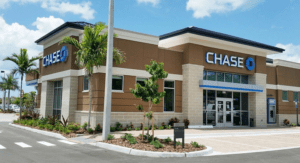
Credit cards are a way to borrow money from a lender or bank. There are two types of credit cards, a secured and traditional ones. Secured credit cards are mainly used to build credit but are considered a higher risk to the bank, resulting in high interest rates.
However, there are benefits and drawbacks to these cards. In this post, you can read on to learn more about Why Interest Rates Are High with a Secured Credit Card.
Secured vs. Traditional Credit Cards
When it comes to secured cards, you will need to deposit cash to guarantee that you repay the amount that you borrow. If the card does not require a cash deposit, then they are considered unsecured. Credit scores don’t matter as much for secured credit card issuers because they can get rid of the cash deposit to pay off the card.
Lenders of traditional unsecured credit cards seek for the borrower to repay the borrowed money with security. Traditional credit card issuers use credit scores to see if the borrowers are able to pay back a loan.
Advantages and Disadvantages of Secured Credit Cards
When it comes to advantages of secured credit cards, they give the chance to build a credit history if you have limited or bad credit scores. For those who cant qualify for traditional credit cards, secure credit cards are open to most borrowers. On top of that, if you are responsible with it then it will lead to a higher credit score.
Some disadvantages of secured credit cards include relatively low limits based on how much the borrower can deposit. Their interest rates will not be as low as the best credit card interest rates given to a borrower with good credit scores.
Using a Secured Credit Card
These types of borrowers should consider using a secured credit card:
- You’re an applicant with a limited credit history, such as a student
- You have a low credit score
- You have trouble getting your own unsecured credit card
However, you should understand the following before you sign up for a secured card to see if it’s for you:
- All of the credit card rates and fees, including annual fees, sign-up fees, and interest charges
- Whether or not the card reports to the credit bureaus
- How large of a deposit you must make, and what your associated credit line will be
- How long until you’ll have the opportunity to get an unsecured credit card
 |
Bottom Line
If you are looking to open a credit card soon, it is important to understand the difference between secured and traditional credit cards. There are advantages and disadvantages to everything so understand all aspects before signing up for one!
For more information on banking, check out more bank guides right here on HMB!



